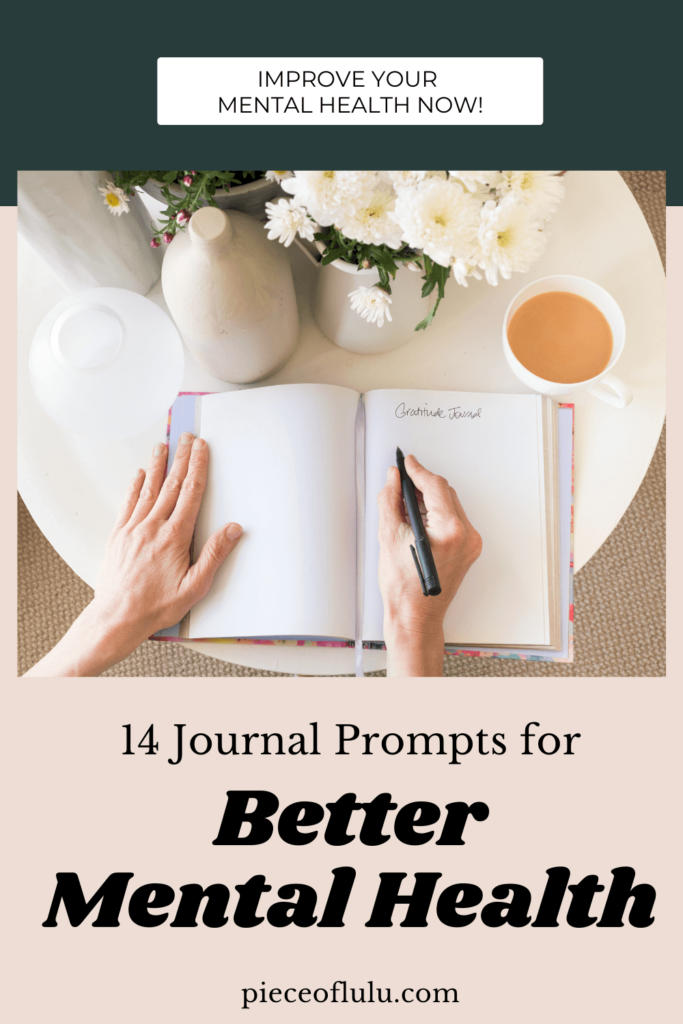Journaling is a way to take all the thoughts swirling around in your head and put them on paper, making for a clear headspace and better mental health.
Ways to Journal
If you’ve never journaled before you’re probably picturing someone using leatherback notebook and a fancy metal pen and sitting next to a roaring fire and figuring out a major life decision.
Well, that could be happening somewhere, but not usually.
Journaling just needs you and a way to put down some words. This could mean types on a Word document, quickly written on a scrap of paper, or in a dedicated journal.
Any way you get get your thoughts down is a perfect way!
Pin NOW to save for later!

- How are you feeling in this moment?
- What is something you can do to improve tomorrow?
- Who is one person you are grateful for?
- If you wrote yourself a love letter, what would it say?
- Are you putting yourself first?
- Do you have time for your hobbies?
- Are you waking up excited for your day?
- Remind yourself why you are enough.
- What do you truly want out of your life?
- Can you stressors be broken down?
- What is standing in the way of your happiness?
- Describe the last time you felt genuinely happy.
- Make a list of self-care acts you can do when you feel in need.
- In what way can you improve yourself?
What Hurt Your Mental Health?
Using journaling prompts you can find unexpected reasonings. Prompts provide questions you would have probably not asked yourself. Meaning, you’ll end up with unexpected solutions too.
Your mental health plays a role in everything you do and feel. If you believe your mental health isn’t in it’s best shape keep putting in the work until you’ve reached a better space.

How Much Should You Write?
This isn’t school. There’s no minimum or maximum word count. Simply write until you got out everything you needed to get out.
This could be one sentence or 10 pages! There’s no need to compare to what others are writing.





Leave a Reply